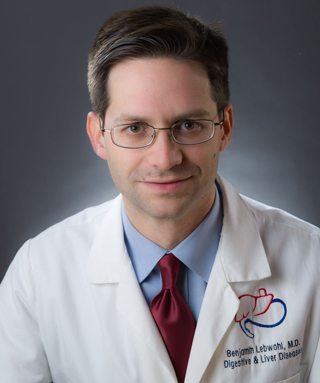Leading Experts React to New Study Examining Effectiveness of Colonoscopies: “Colon Cancer Screening Saves Lives”
The 10-year trial examined the effects of colonoscopy screenings on colorectal cancer risk and related deaths in people in Poland, Norway, Sweden, and the Netherlands.

Despite a new study published in the New England Journal of Medicine that found the effect of colonoscopy screenings had a small impact on the risk of developing colorectal cancer and none on related deaths, leading experts say the results should not dissuade people from getting screened.
Colonoscopies, a way to get screened for colorectal cancer, allow doctors to find and remove polyps before they potentially become cancerous. They have been shown to reduce colorectal cancer death.
Colorectal cancer is the third leading cause of cancer-related death in the U.S. when skin cancers are excluded, according to the American Cancer Society. In 2022, colon cancer is expected to cause about 52,580 deaths, according to the society’s estimates. Beginning at age 45, routine screening is recommended by the Centers for Disease Control and Prevention. If there are no factors that increase the risk for colon cancer, a person can get a colonoscopy every 10 years.

Dr. Felice Schnoll-Sussman
Dr. Felice Schnoll-Sussman, a gastroenterologist and the director of the Jay Monahan Center for Gastrointestinal Health at NewYork-Presbyterian/Weill Cornell Medical Center, and Dr. Benjamin Lebwohl, a gastroenterologist at NewYork-Presbyterian/Columbia University Irving Medical Center, spoke with Health Matters about the New England Journal of Medicine study conducted in Poland, Norway, Sweden, and the Netherlands, what is known about colon cancer and colonoscopy screening in the U.S., and what they want the public to keep in mind.
“Any screening is better than no screening. That is 100% true,” said Dr. Schnoll-Sussman, who is also a professor of clinical medicine at Weill Cornell Medicine. “But people should not walk away from the study thinking colonoscopies are not efficacious in the battle against colorectal cancer.”
“Studies should not be analyzed in a vacuum,” added Dr. Lebwohl, who is also the Louis and Gloria Flanzer Scholar at Columbia University Irving Medical Center. “It’s really important to take into account the growing set of studies that show that colon cancer screening saves lives.”
What did the study in the New England Journal of Medicine examine? Is it applicable to the U.S.?
Dr. Schnoll-Sussman: In this study, their intention was to evaluate people that had a colonoscopy and watch them for 10 years to see whether two things happened. One, if having a colonoscopy decreased all-cause mortality, meaning people dying of anything, and two, if it decreased the incidence and death from colon cancer. This was the first, very large prospective randomized trial of colonoscopy. We have not had that study done in the U.S., so by concept, it was an important study to do.
Dr. Lebwohl: The investigators of the study practiced what’s called intention to treat or intention to screen. They randomly assigned people to either be invited to colonoscopy or not to be invited and then compared the two in regard to outcomes. This could only be done in parts of the world where there is not a lot of colon cancer screening and where it is not widely accepted, such as in Northern and Eastern Europe, where the study took place. I would say that this is not easily applicable to the U.S. for a number of reasons. The most important difference is that colon cancer screening is widely accepted in the U.S., and nearly 70% of eligible individuals are up to date with their colon cancer screenings here, whether it is by colonoscopies or other methods.

Dr. Benjamin Lebwohl
What have been common critiques of the study? What do its findings add to the literature?
Dr. Schnoll-Sussman: A common critique is that only 42% of the people that were invited to get a colonoscopy actually had the colonoscopy done. What this study proved is that if you do not have a colonoscopy, it is not going to work, and if you invite someone to get a colonoscopy and they do not have it done, it will not work.
But when you looked at the people who had the colonoscopy done, this was actually a success story. When they did the protocol analysis to look at those people who had the colonoscopy, there was a decrease in colon cancer in that patient population. And out of the ones that were done, they were extraordinarily safe. There were no perforations in this study, and there was also a low incidence of significant bleeding. Another thing that the findings add to the literature is the safety of colonoscopy screening itself.
Dr. Lebwohl: Among people who were invited to undergo colonoscopy, there was a small decrease in the risk of colon cancer and no change in colon cancer death. I would say this was a relatively underwhelming result. But it is highly likely that the reason this is underwhelming is that most people who were invited to the colonoscopy said no. I would say that the most relevant audience for this paper is the departments of health in European nations. They should take these results seriously and conclude that offering colonoscopy to their population is likely not to be widely accepted. Nearly 60% declined.
What do we already know about the effectiveness of colonoscopies? What still needs to be answered?
Dr. Schnoll-Sussman: The key thing is that there have been multiple studies that have shown that screening decreases the incidence of colon cancer and can improve mortality from colon cancer. And these are incredibly important things; we do not want misinterpretation of them. Screening saves lives. My message to the public is to get a colorectal cancer screening at the age of 45 and onward. And that there is patient preference for screening modalities; colonoscopies are not the only screening modality. If you are not interested in having a colonoscopy, you can do stool-based testing, among other alternatives.
Dr. Lebwohl: There are some important questions that we do need to answer about colonoscopies, such as whether a colonoscopy is a much better test than annual stool-based testing, in terms of the ability to prevent more cancer and more cancer deaths. We do not know the answer to that question yet, but there are ongoing trials that will be published in the next few years that will help us. But that is a comparison of two different ways to screen, which is important to remember. Whether to screen is a settled matter. It is lifesaving.
Felice Schnoll-Sussman, M.D., is a gastroenterologist and the director of The Jay Monahan Center for Gastrointestinal Health, director of endoscopy at NewYork-Presbyterian/Weill Cornell Medical Center, and a professor of clinical medicine at Weill Cornell Medicine.
Benjamin Lebwohl, M.D., M.S., is a gastroenterologist at NewYork-Presbyterian/Columbia University Irving Medical Center and the director of Clinical Research at the Celiac Disease Center at Columbia University, where he collaborates with investigators in the U.S. and abroad in epidemiology, patterns of care, natural history, and therapeutics. Dr. Lebwohl is also the Louis and Gloria Flanzer Scholar at Columbia University Irving Medical Center.
Additional Resources
For more information on Gastroenterology services at NewYork-Presbyterian, visit www.nyp.org/digestive.
Learn more about the Jay Monahan Center for Gastrointestinal Health at NewYork-Presbyterian/Weill Cornell Medical Center.
